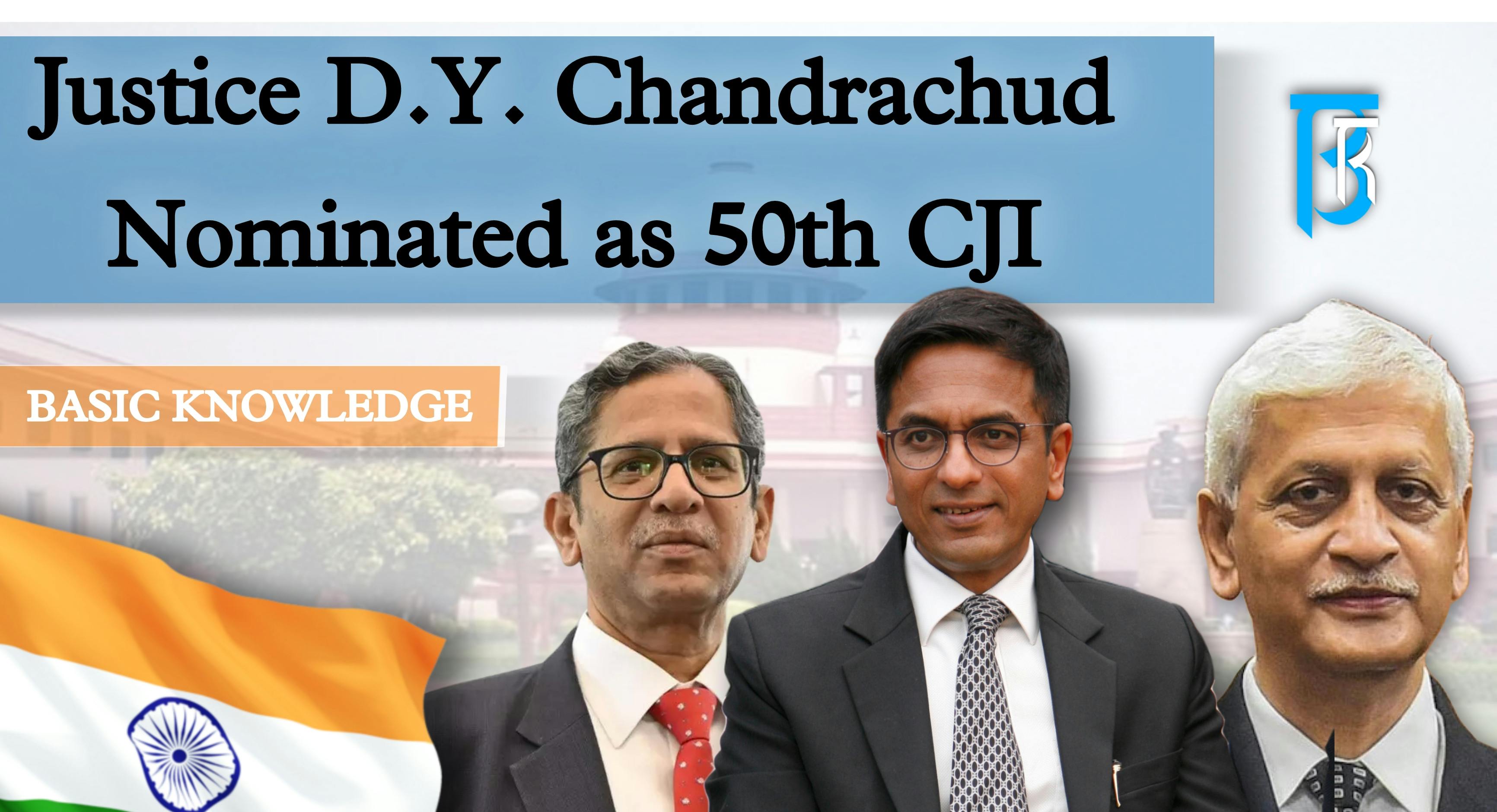Justice D.Y. Chandrachud Nominated as 50th CJI

Justice Dhananjaya Yeshwant Chandrachud is set to become the 50th Chief Justice of India (CJI) in November 2022.The current CJI Chief Justice of India U.U. Lalit nominated Justice D.Y. Chandrachud as his successor during a meeting involving other judges of the Supreme Court held on October 11, 2022.
Highlights:-
• Justice D.Y. Chandrachud would be the first second-generation Chief Justice of India.
• Justice D.Y. Chandrachud's father-Justice Y.V. Chandrachud was the 16th Chief Justice of India.
• Justice Y.V. Chandrachud became the CJI in 1978. He held this position for the longest tenure of seven years.
• In 2017, the top court involving Justice D.Y. Chandrachud and other judges over ruled the 1975 ruling in the in famous Habeaus Corpus case, which allowed the suspension of the right to life during emergency. In 1975, the former CJI Chandrachud was among the four in five judges who upheld the President's order to impose emergency in the country.
About D.Y Chandrachud :-
• Dhananjaya Yashwant Chandrachud (born 11 November 1959) is an Indian judge who is serving as the 50th and current Chief Justice of India.
• He is a former ex-officio executive chairman of National Legal Services Authority whilst being of the Supreme Court of India.
• he is a former chief justice of the Allahabad High Court and a former judge of the Bombay High Court.
Additional information:-
• On 10 August, 2022, Justice Uday Umesh Lalit was appointed as the 49th Chief Justice of India (CJI). President Droupadi Murmu signed his appointment. He will have a brief tenure (three months) as he will demit office on 8 November, 2022. Justice Lalit assumed charge on August 27, a day after Justice N.V. Ramana demits office as the CJI.
• U.U lalit is also the executive chairperson of the National Legal Services Authority (NALSA).
About Chief Justice of India:-
• appointment
Article 124- As the incumbent chief justice approaches retirement, the Ministry of Law and Justice seeks a recommendation from the incumbent chief justice. Consultations with other judges might also take place. The recommendation is then presented to the prime minister, who passes the advice on to the president.
• Removal
Article 124(4) of Constitution of India lays down the procedure for removal of a judge of Supreme Court which is applicable to chief justices as well. Once appointed, the chief justice remains in the office until the age of 65 years. There is no fixed tenure provided in the constitution.
• Parliament has to write to increase the number of judges in Supreme Court.
• Article-125 – Salary of Judges – Judges are given salary from the accumulated fund in which deduction is not made. CJI is given 280 lakh rupees. And other judges are given Rs 250 lakh.
Article-126 - When CJI is absent. So only one of the few judges becomes the Chief Justice
World's first cheetah rahabilitation project
Nobel prize
Rajpath ka name badla gaya
G-20